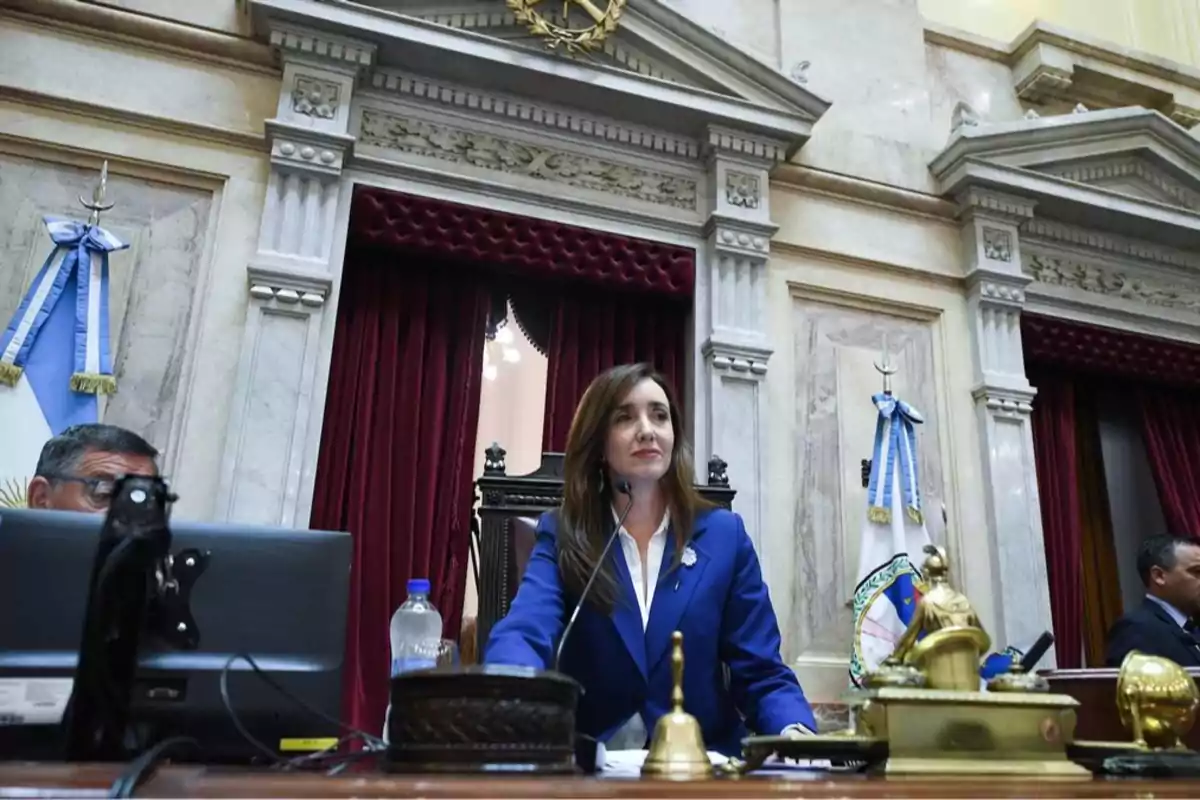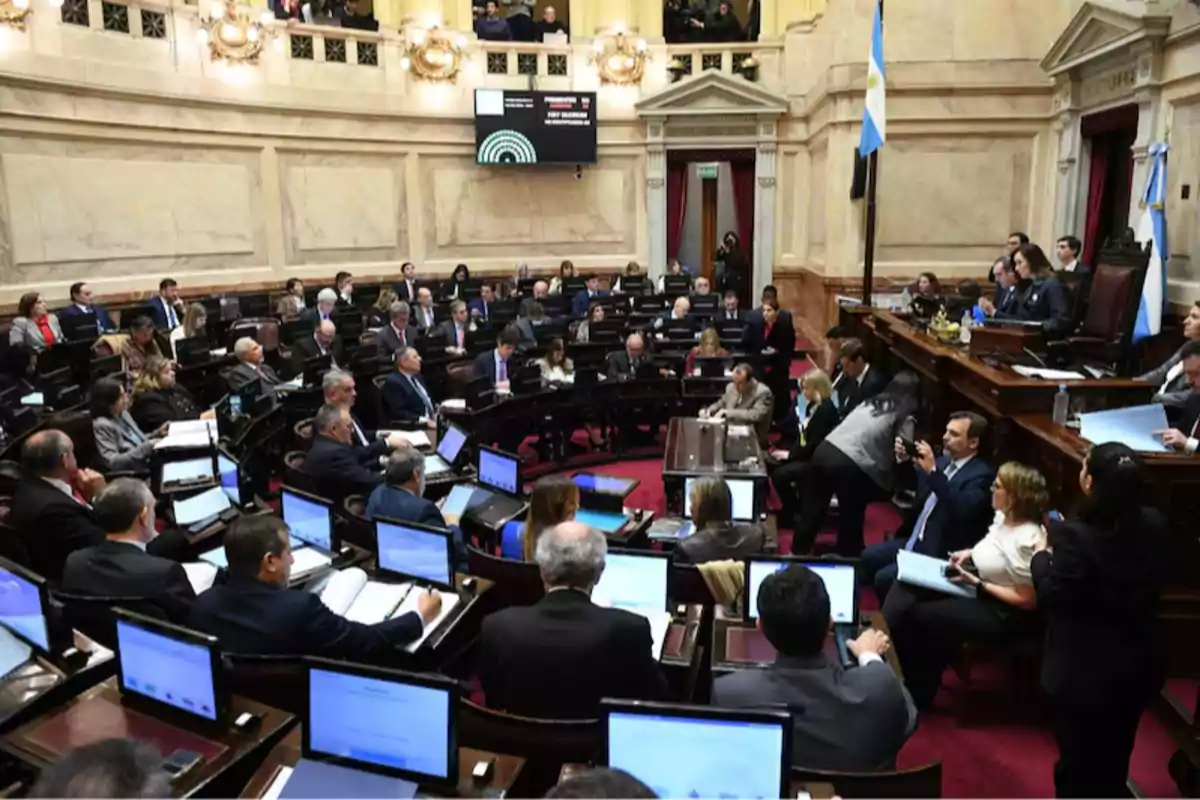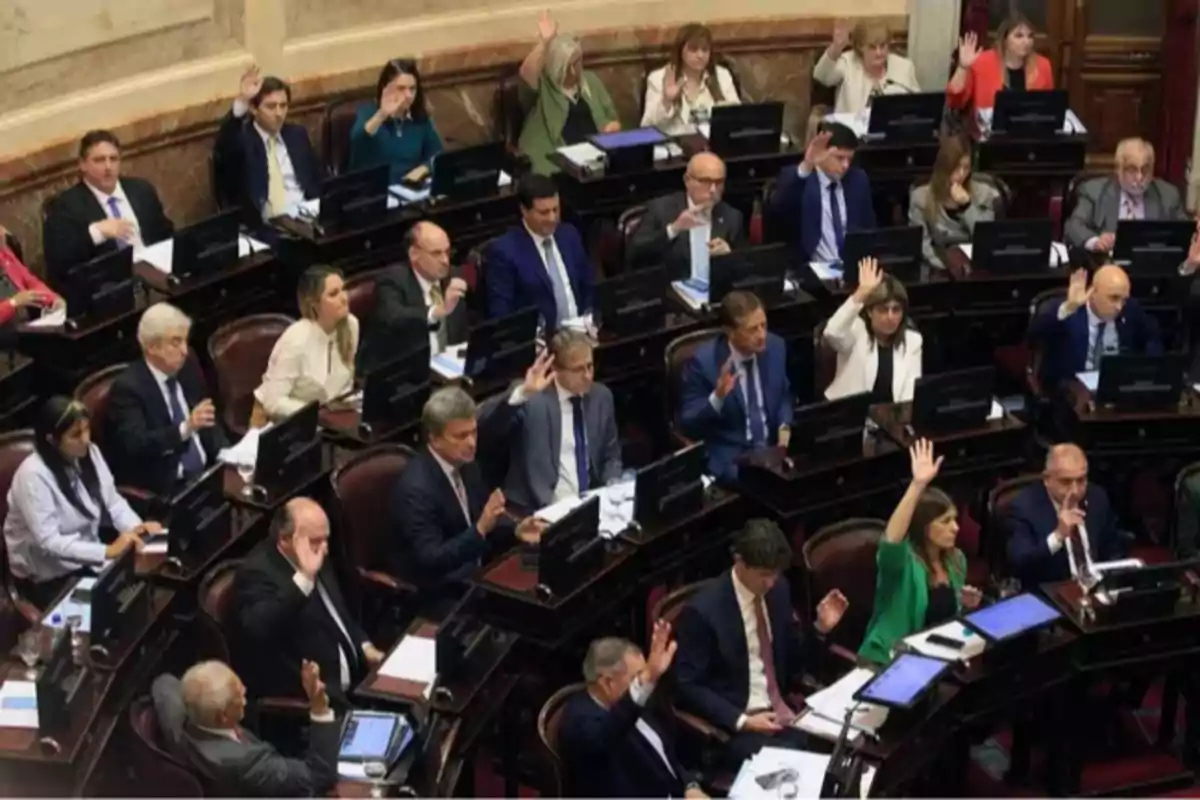
The Senate has spent more than 87 billion pesos (191,802,167 pounds) so far this year
While the government is promoting a fiscal adjustment, the upper chamber has spent $87,927 million so far this year
In the midst of a fiscal adjustment process led by President Javier Milei, who seeks to balance public accounts and put an end to the structural deficit, the Senateof the Nation has once again become the center of debate over the discretionary use of public resources.
The upper chamber executed an expenditure of $87,927 million, almost double that of the Intelligence Secretariat ($43,232 million), an area that has historically concentrated sensitive funds and now operates with a very limited budget.

Despite this level of spending, Vice President and head of the body, Victoria Villarruel, stated: "If you want to save, end SIDE's expenses", in a statement that contrasts with the Senate's own figures. The statement was interpreted by sectors of the ruling party as an attempt to divert attention from the budget mismanagement of Congress and to distance herself from the austerity policy promoted by the Executive.
Among the most questioned items is the February contracting of a mobile phone and data plan for $48,187,795.20, followed in March by another full dedicated cable television and internet service for $54,211,736.47. Both contracts, valid for one year, total more than $102 millionjust for digital services for internal Senate use.
The formal argument was that such services are "necessary for the development of legislative activity". However, the body's level of activity has been low: senators have held just over ten sessions throughout 2024.
Meanwhile, the Senate also approved an increase that raised the legislators' gross salaries to $9.5 million per month, a figure that is more than ten times the average registered salary in the country and almost 30 times the minimum retirement benefit.
This decision was made months before the legislative debate in which 52 senators expressed support for a 7.2% increase in pensions, while publicly questioning the Government's stance of vetoing any initiative that would compromise fiscal balance.

The contrast exposes a double standard: while the ruling party applies a cross-cutting adjustment at all levels of the State, a large part of Congress continues to operate with logics of privilege and inflexible spending. The resources allocated to advisors, per diems, services, and consumption in the Senate show no signs of restraint, despite the discourse of some legislators who denounce cuts in social areas.
From the perspective of the national Government, the problem is not only the order of priorities, but the existence of an oversized state structure sustained by political privileges. The Executive keeps that "there's no money" and that available resources must be used to repair the economic damage inherited after decades of populism and waste.
In this context, the Senate's behavior reaffirms one of the pillars of Milei's program: without a structural political reform, the adjustment will never reach the ruling class responsible for the fiscal collapse.
More posts: